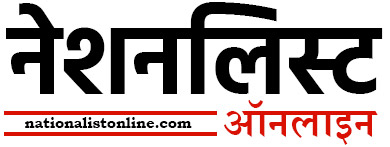Vaibhav Chadha
On 29th June, 2016 the Union Cabinet accepted the recommendations of 7th Central Pay Commission which will come into effect from January 1, 2016. The Government has implemented the recommendations within 6 months of its due date which is a very less time as compared to 19 months taken for implementation of the 5th Pay Commission and 32 months taken for 6th pay commission. The Cabinet has also decided that arrears would be paid to the government employees during the present financial year 2016-17. The recommendations of 7th Pay Commission will benefit more than 1 crore Central Government employees, this includes more than 47 lakh central government employees and 53 lakh pensioners. The total burden on exchequer with implementation of recommendations will be a staggering Rs. 1,02,100 Crore which shall be highest ever as the burden was Rs. 40,000 Crore during implementation 6th Pay Commission and Rs. 17,000 crore at the time of 5th Pay Commission.
The entry-level salary of central government employees will rise now from Rs 7,000 per month to Rs 18,000 and the salary of the top civil servant, the Cabinet Secretary, would go up from Rs 90,000 to Rs 2.5 lakh per month. A fitment factor of 2.57 has been suggested to be applied uniformly for all central employees. After absorbing the dearness allowance at prevailing rate, the salary/ pensions of employees will now increase by a hike of average 23.55%. The rate of increment of 3 percent which existed earlier has been maintained but now employees shall be benefited with higher basic pay. The gratuity ceiling has been doubled from Rs 10 lakh to Rs 20 lakh and housing loan allowance has also been raised from Rs 7.5 lakh to Rs 25 lakh.
“Signs of challenging economic conditions in the Indian manufacturing sector were evident in May, with output losing further growth momentum. The headline PMI (Purchasing Managers’ Index ) remained in expansion territory, but recorded one of its lowest readings since the end of 2013, suggesting that the sector is barely improving,” said Pollyanna De Lima, Economist at Markit and author of the report. Consecutive years of drought have hurt the farm sector and adversely affected the purchasing power of rural consumers. This has also hit automobile sector badly in the country. The decision has been taken by the Government at the appropriate time as from August onwards the festive season will begin in India which creates a good demand in the market. Following Central Pay Commission, State government employees, central and state public sector employees, autonomous bodies, urban local bodies and universities will also have revision in their pays. This will give more money in the hands of the public employees to spend which shall have a positive impact overall. With a rise in consumption demand, much awaited boost will be infused in the economy improving the overall growth rate of GDP. Benefit will reach various sectors such as automobiles, Fast-moving consumer goods (FMCG), housing and Jewellery. The push expected to be given by the Pay Commission implementation shall be of great benefit to the economy as with rise in demand of the consumer goods. A high consumption is beneficial to the financial markets, as extra spending by households will tweak the corporate profits giving more money in its hand to expand to its manufacturing capacities for meeting demand.
Not all Government employees/ pensioners are going to spend their revised pays but also there will be a section of Government employees/ pensioners who will use the increased salaries for saving purposes. When bank deposits growth rate has hit a 53 year low of 9.7 per cent in the last financial year, the implementation of 7th Pay Commission will spur savings by the households and give a fillip to the bank deposits, creating a pool of capital for banks enhancing its lending power. With improved lending power, banks will be able to give more loans to the general public; this will enhance the investments by them in sectors such as housing.
If an overall analysis is done of implementation of the 7th Central Pay Commission, it can be said that it will bring Achhe Din for the general public as it may benefit the Central employees in terms of more money in their hands, but eventually a major portion of this money will permeate in the economy by more expenditure. The Government might face a huge expenditure at the moment but there is nothing to worry about as there will also be a simultaneous rise in the tax collection (both Direct and Indirect taxes) which will be utilized by the Government in development of the country and in social sectors for the benefit of the poor.
(Author is a Research Associate at Dr Syama Prasad Mookerjee Research Foundation, New Delhi)
